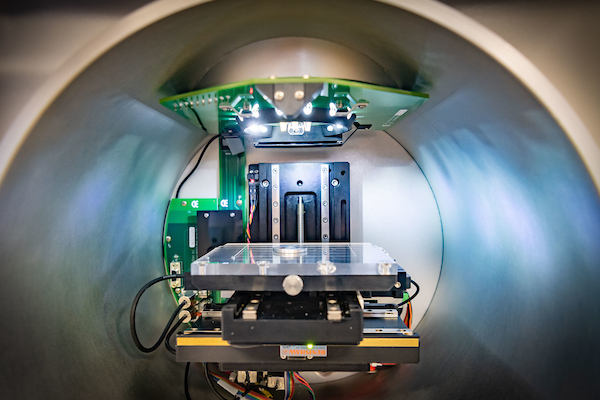

The Center for Environmental Science and Technology (CEST) has moved to a new space in the Fitzpatrick Hall of Engineering. The CEST office and laboratory space that was previously on the first floor of Fitzpatrick Hall have been relocated two floors down to the B-level of Fitzpatrick Hall to make room for the Engineering Innovation Hub facility.
CEST now occupies the following space:
- Room B21A - CEST Staff Offices and Meeting Room
- Room B10 - CEST Multi-Instrument Analytical Facility
- Room B19A - CEST Stable Isotope Facility
- Room B20 - CEST Prep Lab
This new space offers enhanced flexibility for instrument spacing and configuration in order to operate CEST safely during the pandemic. The space also enables all of CEST instrument rooms to be closer together, making it easier for CEST staff to oversee the facilities.
“The relocation would not have been possible without the extraordinary effort put forward by the CEST staff – Dana Biasatti, Mike Brueseke, and Jon Loftus – who were instrumental in quickly and efficiently planning and executing the move and getting all of the instruments back up and running in the new space. This was especially challenging in the midst of the pandemic while maintaining appropriate social distancing, and I commend them for their dedicated – and safe – work,” said Jeremy Fein, professor in the Department of Civil and Environmental Engineering and Earth Sciences and director of CEST. “We are all excited to be in our new space and to be able to continue supporting research and scholarship across campus.”
All of CEST’s equipment is now operational for researchers, and CEST is actively taking bookings for its services. To learn more about CEST and facility equipment, please visit cest.nd.edu.
CEST fosters interdisciplinary environmental research and education by providing cutting-edge analytical technologies needed to address national and international problems. CEST supports interdisciplinary environmental education, research, and stewardship through a variety of education and outreach activities.
Contact:
Brandi Wampler / Research Communications Specialist
Notre Dame Research / University of Notre Dame
brandiwampler@nd.edu / 574.631.8183
research.nd.edu / @UNDResearch
About Notre Dame Research:
The University of Notre Dame is a private research and teaching university inspired by its Catholic mission. Located in South Bend, Indiana, its researchers are advancing human understanding through research, scholarship, education, and creative endeavor in order to be a repository for knowledge and a powerful means for doing good in the world. For more information, please see research.nd.edu or @UNDResearch.
Originally published by at cest.nd.edu on October 16, 2020.